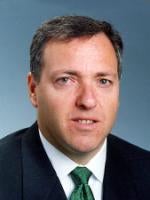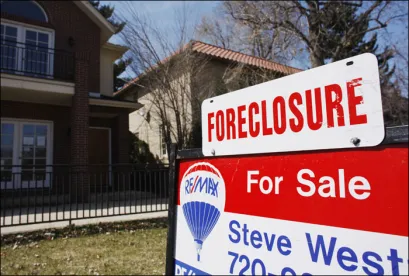On March 20, 2019, the Supreme Court of the United States ruled in the case of Obduskey v. McCarthy & Holthus LLP No. 17-1307 that a law firm conducting non-judicial foreclosure proceedings is not a “debt collector” under the Fair Debt Collection Practices Act, 15 U.S.C. 1692 et seq. (“FDCPA”), other than for a limited purpose.
Background
The FDCPA regulates the conduct of “debt collectors”. Among other things, it (a) restricts false, deceptive or misleading means in connection with the collection of any debt1, (b) prohibits conduct that is harassing, oppressing or abusive in connection with the collection of a debt2, (c) requires that if a consumer disputes the amount of a debt, a debt collector must cease collection until it obtains verification of the debt and mails a copy to the debtor3, and (d) prohibits certain unfair practices.4
Non-judicial foreclosure is a process by which creditors can enforce their security interests in real property outside of the court system. Non-judicial foreclosure is available in roughly half of the United States and, while the process varies based on state law, it generally involves a notice of default and notice of a public sale of the property being foreclosed on and, if the default is not cured after a period of time, a public auction of the property.
The Case
In 2007, Dennis Obduskey bought a home with a mortgage loan secured by the property he purchased. Two years later, Obduskey defaulted on the loan and the lender hired a law firm, McCarthy & Holthus LLP, to carry out a non-judicial foreclosure. McCarthy & Holthus LLP notified Obduskey that it had been engaged to commence foreclosure and disclosed the amount outstanding on the loan, and identified the creditor.5 Obduskey requested verification of the amount owed as required by §1692g(b) of the FDCPA.6 Rather than ceasing collection efforts and providing verification of the debt, McCarthy & Holthus LLP instituted a nonjudicial foreclosure. At issue in the case was whether McCarthy & Holthus LLP qualified as a “debt collector” within the meaning of the FDCPA.
As described above, the FDCPA prohibits or restricts certain actions by a “debt collector”. The list of proscribed activities is extensive and anyone who is a “debt collector” is subject to such restrictions. Section 1692a(6) of the FDCPA defines “debt collector” as “any person who uses any instrumentality of interstate commerce or the mails in any business the principal purpose of which is the collection of any debts, or who regularly collects or attempts to collect, directly or indirectly, debts owed or due or asserted to be owed or due another.” Section 1692a(6) of the FDCPA further provides that “[f]or the purpose of section 1692f(6) [emphasis added] of this title, [the term “debt collector”] also includes any person who uses any instrumentality of interstate commerce or the mails in any business the principal purpose of which is the enforcement of security interests.”7
Section 1692f(6) of the FDCPA provides that the following actions by a debt collector are prohibited: taking or threatening to take a nonjudicial action to effect dispossession or disablement of property if (i) there is no present right to possession of the property claimed as collateral through an enforceable security interest; (ii) there is no present intention to take possession of the property; or (iii) the property is exempt by law from such dispossession or disablement.
The Supreme Court held that McCarthy & Holthus LLP was not a “debt collector” within the meaning of the FDCPA based primarily on the text of the statute because they were enforcing a security interest and thus were subject only to Section 1692f(6) of the FDCPA. The Supreme Court noted that the first sentence of the paragraph defining “debt collector” reads as follows:
“any person . . . in any business the principal purpose of which is the collection of any debts, or who regularly collects or attempts to collect, directly or indirectly, debts owed or asserted to be owed or due another.”8
and that the third sentence of the same paragraph, which the Supreme Court refers to as the “limited-purpose” definition provides:
“For the purpose of section 1692f(6) [the] term [debt collector] also includes any person . . . in any business the principal purpose of which is the enforcement of security interests.”9
In the opinion, Justice Breyer for the Court noted that “foreclosure is a means of collecting a debt” and concluded the actions taken by McCarthy & Holthus LLP in pursuing a non-judicial foreclosure, which is both an attempt to collect a debt and an enforcement of security interests, did not subject it to the requirements and prohibition of the FDCPA other than Section 1692f(6). In deciding in this manner, the Supreme Court relied on that fact that the inclusion of the “limited-purpose” definition and particularly the word “also” supported McCarthy & Holthus LLP’s argument that a person in the business of enforcing security interests is only subject to the requirements of Section 1692f(6) because “[o]therwise why add this sentence at all?”10 In further support of its decision, the Supreme Court noted that the decision by Congress to treat non-judicial foreclosure differently from other debt collection may have been an effort to avoid conflicts with state non-judicial foreclosure laws and also pointed to the legislative history of the FDCPA, which suggests that the final version of the law was a compromise between subjecting the enforcement of security interests to the full coverage of the law and excluding such enforcement in its entirety.11
Impact
Obduskey v. McCarthy & Holthus LLP makes clear that a lawyer or other person pursuing a non‑judicial foreclosure is not subject to the full coverage of the FDCPA. In those cases, a person pursuing non-judicial foreclosure is subject to any applicable state laws related to non-judicial foreclosure. It should be noted however, that both the majority opinion and especially the concurring opinion by Justice Sotomayor leave open the possibility that Congress may revisit the FDCPA to specifically expand its reach to the enforcement of security interests. Additionally, the concurring opinion emphasized that the decision does not suggest that “pursuing nonjudicial foreclosure is a license to engage in abusive debt collection practices like repetitive nighttime phone calls; enforcing a security interest does not grant an actor blanket immunity from the Act.”12
1 15 U.S.C. 1692e
2 15 U.S.C. 1692d
3 15 U.S.C. 1692g
4 15 U.S.C. 1692f
5 Obduskey v. McCarthy & Holthus LLP, slip op. at 4, 586 U.S. ___ (2019).
6 Id.
7 15 U.S.C. 1692a(6).
8 Id.; quoting 15 U.S.C. 1692a(5).
9 Id.
10 Id.
11 Id.
12 Id.; Sotomayor concurring.





 />i
/>i
